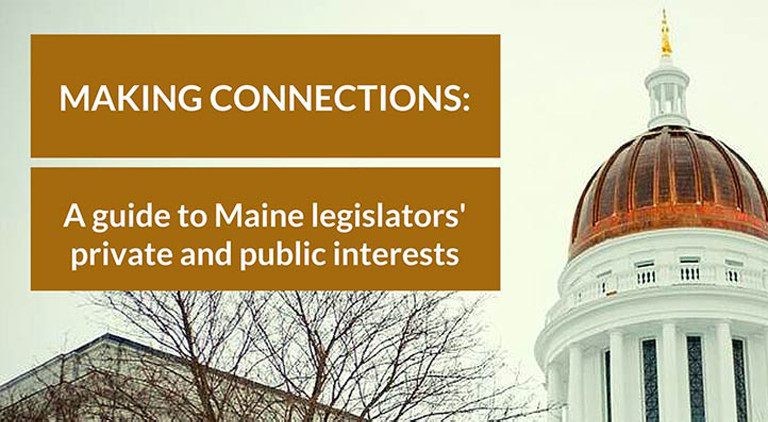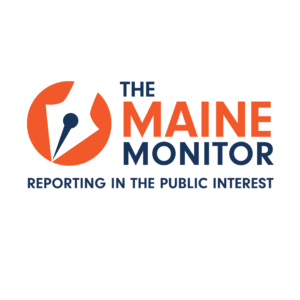The Maine Center for Public Interest Reporting has launched a new interactive online tool to help the state’s citizens better understand the private financial interests of their legislators. “Making Connections: A Guide to Maine Legislators’ Private and Public Interests” is a database that brings together lawmakers’ sources of personal and family income, legislative assignments, civic associations they serve and the bills for which those lawmakers were the lead sponsor during the 2015 legislative session.
The tool is now available directly at apps.pinetreewatch.org/maine-legislature.
For citizens who want to understand how the state legislature works, the database provides a launch pad for research. Users can easily look up state senators or representatives by name and discover their sources of income, the income sources of family members, what businesses they own, as well as the bill numbers and summaries of legislation on which the lawmakers were primary sponsor.
The information contained in the database is drawn from publicly available records, but before now the data were located in different locations, often on hand-written forms that were nearly impossible to search.
And they were hard to read: The two reporting fellows, Margaret Robbins, a Bowdoin student, and Dorothy Hastings, a Barnard College student, spent more than a month poring over those forms, deciphering the mostly hand-written reports. Sources include 2014 lawmaker income disclosure forms, the Maine Commission on Governmental Ethics and Election Practices and the Maine Legislature’s own website.
“We draw no conclusions about the possible convergence of private and public interests, only provide the information so that readers can look for conflicts of interest themselves,” said Naomi Schalit, the Center’s senior reporter who oversaw the site’s development by reporting fellows Meg Robbins and Dorothy Hastings.
“Nonprofit, nonpartisan news services such as the Maine Center for Public Interest Reporting are increasingly providing easy-to-use, informative databases to their audiences,” said publisher and senior reporter Jack Beaudoin. “We hope that this is just the first of many data sets that we are able to bring to Maine citizens to improve accountability and transparency in state government.”
The Maine Center for Public Interest Reporting was established six years ago to produce investigative reporting about Maine. Its stories — more than 200 since 2009 — are provided at no cost to more than 30 newspapers and radio station and are also published on its website.




